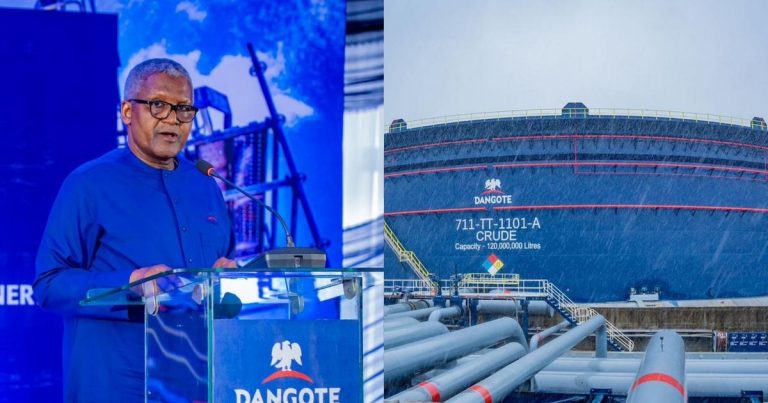Dangote Petroleum Refinery has firmly rejected Pinnacle Oil’s justification for importing off-spec petroleum products, asserting that deregulation should not be used as an excuse to undermine national interests or compromise the integrity of Nigeria’s energy sector.
On Tuesday, Dangote Refinery responded to statements made by Robert Dickerman, Chief Executive Officer of Pinnacle Oil and Gas Limited, who had defended the practice of blending off-spec petroleum products within the framework of a “deregulated commodity market.” Dangote’s response emphasized that such actions, in the name of deregulation, posed serious risks to the welfare of Nigerians and the sustainability of the nation’s energy sector.
In its statement, Dangote Refinery underscored its support for deregulation, noting that its backing for industrialisation and economic reform was driven by a commitment to Nigeria’s long-term prosperity and protection of its citizens. However, the refinery stressed that this support was not a blanket endorsement for practices that could harm public health or compromise national security.
The statement read: “The Dangote Petroleum Refinery and Petrochemicals Company has always supported deregulation and industrialisation in Nigeria, but our support is rooted in a commitment to the sustainable growth of the country’s economy and the protection of its people from exploitation. Deregulation should not be used as a license to import and distribute off-spec products or undermine national interests.”
Dangote also pointed out that Dickerman, as an American, should understand the importance of protecting domestic industries, referencing recent U.S. examples where national interests were prioritized over short-term profits. The company cited U.S. President Joe Biden’s opposition to the sale of U.S. Steel to Japan’s Nippon Steel, and actions taken to restrict the use of Chinese-made cranes in U.S. ports due to national security concerns.
It added, “It is perplexing that Dickerman, with his experience in the U.S. market, would advocate for the importation and blending of petroleum products in Nigeria under the guise of deregulation and a free market. His request for us to extend our pipeline to Pinnacle’s tank farms to blend our high-quality products with their imported products was a direct attempt to undermine the integrity of our national energy system. We categorically rejected that request.”
Dangote Refinery also raised concerns about Pinnacle Oil’s decision to lease tank farms near Dangote’s facilities, questioning the strategic motives behind such actions, particularly as Pinnacle had no retail outlets in Nigeria. The refinery expressed its vigilance regarding what it called coordinated efforts to undermine its operations, drawing comparisons to the challenges faced by other refineries in the country, such as those in Port Harcourt, Kaduna, and Warri.
Dangote called on the Nigerian government, local businesses, and citizens to unite in defense of the nation’s sovereignty and economic independence, warning against the continued exploitation of Nigeria as a dumping ground for substandard petroleum products. It also emphasized that the time had come to end the cycle of dependency on imported fuel and to develop Nigeria’s refining capacity.
The statement concluded: “For nearly three decades, cartels and their collaborators have sabotaged efforts to build Nigeria’s refining capacity, keeping the country dependent on imports. The time to end this cycle of exploitation is now. We must ensure that Nigeria’s energy sector works for the benefit of its people. We remain committed to supporting policies that encourage industrialisation, protect our industries, and safeguard the well-being of all Nigerians.”
Dangote further reiterated its support for healthy competition that drives innovation and quality in the energy sector and expressed optimism about the upcoming commissioning of the four state-owned refineries in Kaduna, Warri, and Port Harcourt. These refineries, Dangote said, would help dispel concerns of monopolistic practices and position Nigeria as a key refining hub in Africa.
The company added: “At Dangote Petroleum Refinery, we are committed to ensuring that Nigeria becomes self-reliant in petroleum production. We welcome competition that drives innovation and quality, but we will never allow the importation of substandard petroleum products or the deliberate destruction of our national economy. The coming online of the state-owned refineries will solidify Nigeria’s position as a leader in petroleum refining on the African continent.”

